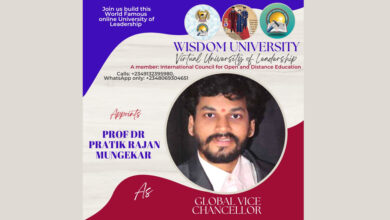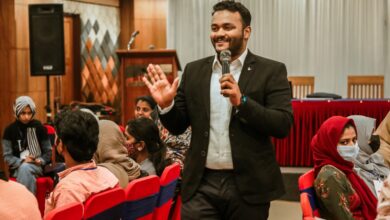Rural Children: Carrying Burdens Instead of Books

As teachers, we often see empty benches and imagine careless children, the ones who don’t like to study, who prefer games over lessons. We sit inside our classrooms and write reports, wondering why some names remain absent on the register. But the truth is, every empty bench carries a silent story! a story that we never hear unless we step out of the school gates.
For many of us, visiting a student’s home feels like a formality, a rule forced upon us by the department. But one visit changed everything I believed about teaching, education, and life itself.
That day, I walked down a dusty path in a faraway village, a path lined with silence, cracked walls, and the smell of wet earth. I thought I was going to meet a lazy student who didn’t value education. But when I reached his little mud house, I saw something that tore my heart apart.
There he was, a young boy, hardly fourteen sitting beside a clay wheel, shaping pots with hands that should have been holding books. His palms were covered in mud, not chalk dust, his eyes were tired but filled with quiet strength. As the wheel spun, I realized, it wasn’t just the clay turning. It was his childhood slipping away with every rotation.
Until that moment, I never knew what real struggle looked like.Some children skip school not because they don’t care, but because life has made them the parents of their families. They carry their sisters on their hips, feed their grandparents, work under the sun, and dream under the same sky where other children learn alphabets and rhymes. The boy who had been absent from school since June. I found him making clay pots from morning till evening. His father, burdened by debt, and his mother had gone to Bangalore to work. This young boy, with tears in his eyes, said, “Ma’am, I want to come to school, but I have to take care of my grandmother and help repay my father’s debts.” His words broke my heart.

In the remote corners of our villages, there are many children who carry the weight of responsibilities far beyond their age. Their small hands that should hold books and pencils are instead busy shaping clay pots, cooking food, tending cattle, or caring for sick parents and grandparents. Their eyes carry dreams, but their lives are filled with struggles.
This is not just one child’s story; it is the story of many. In every village, there are children whose education is sacrificed for the sake of survival. Poverty has forced parents to migrate to cities, leaving their children behind with aged relatives. Some children drop out to earn a few rupees, while others carry the burden of the entire family.
And even more painful is the truth that, because of poverty, many girl children are being forced into early marriages,sometimes in 8th or 9th standard itself. I have seen such cases in my previous schools. Many of these young girls lose their lives during childbirth due to immaturity and lack of health care. Their childhood, their education, their dreams,everything ends before it even begins
As teachers, our responsibility goes far beyond the classroom. We must not only teach lessons from books but also protect these children from social evils like child labour and child marriage. We must visit long-absent students, understand their problems, and bring them back to school. When parents give up, a teacher must stand up.
Education is the only light that can break this darkness. A true teacher becomes a parent to the parentless, a guide to the lost, and a hope to the hopeless.
Let us remember, a teacher can change the world, one child at a time. Every child deserves todream, to learn, and to live not just to survive.In my journey as a teacher, I have realized that education is not just about classrooms and books, it is about bringing back lost childhoods.
Madhumati H. Singe
Science Teacher | Writer |
Madhumati H. Singe is a dedicated Science teacher at Government High School, Hedgimadra of Yadgir district, With a passion for education and curiosity-driven learning, she inspires her students to explore the wonders of science through practical understanding and creative thinking.
Beyond teaching, Madhumati is also a writer who loves expressing her thoughts and experiences through words. Her writing reflects her deep connection with nature, education, and everyday life. She finds joy in documenting her experiences and hobbies, which include reading, exploring scientific innovations, and engaging in community activities that promote learning and creativity.
Madhumati believes that education is not only about gaining knowledge but also about nurturing imagination and responsibility among young minds. Her multifaceted interests and commitment to both teaching and writing make her a true ambassador of knowledge and inspiration.







